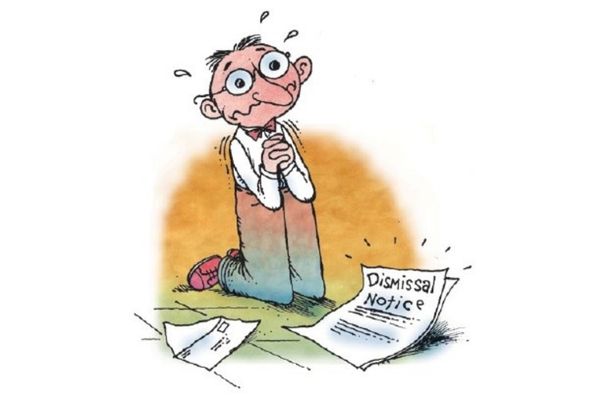The Convenience of License Expiration
January 01, 2016
Ethical Educator

Scenario:
A marginal teacher allows his license to expire, in spite of repeated reminders from the state and from the school district’s human resources department.
By state regulation, he no longer can be employed, and the district processes his dismissal. He appeals to the superintendent, admitting his error but indicating a series of personal circumstances, including a death in the family, took his focus off completing the paperwork.
The principal, seeing this as an expedited way of letting a poor performer go, asks the district to reject the appeal. Human resources supports that position, citing the need for consistency in handling teachers who allow their license to expire.
What should the superintendent do?
Kelly Henson:
Neither the superintendent nor the board of education has the authority to waive state regulation or code. Therefore, I assume the appeal to the superintendent is a request that the superintendent seek a waiver from the appropriate state agency or entity.
The superintendent needs to decide this on the basis of maintaining consistency with similar requests that have been made previously. The teacher’s performance status in this case has no bearing on the decision. A different process should be followed regarding performance issues.
Sarah Mackenzie:
This situation is what makes educators and citizens despair. How long had the teacher been allowed to remain in his position even though his performance was marginal? I would like to think he had been notified that he was not performing adequately and that he was working on an improvement plan. In that case, it might make it harder to terminate him quickly unless he let his license lapse, but it would be more in keeping with the accepted process for dealing with performance of employees.
It is convenient he is in violation of the regulation requiring teachers to have an up-to-date license. But it seems especially cruel to add to this man’s burdens at a difficult time. Nevertheless, the superintendent should deny the appeal. The human resources department is correct in saying the policy is not just that of the school system. It is a state regulation. And the system has to abide by the law and do so in a consistent way. In fact, the school system might be in violation of the law and suffer a penalty if he is not dismissed.
The difficulty here is ensuring decisions on such matters follow a consistent pattern. If he weren’t a marginal teacher who was experiencing these hardships, would the superintendent be pressured to grant an appeal? The ethical principle of benevolence would dictate that the superintendent consider granting the appeal for extenuating circumstances. And here is the rub: To dismiss him outright is not fair if other teachers under similar circumstances have been allowed an extension.
The superintendent, in going along with the principal, must inform him or her that the decision is based on the state regulation and human resources’ request for consistency in following procedures in such circumstances. Further, the superintendent should make clear to the principal that his or her job involves appropriate supervision and evaluation of staff members. And the system’s procedures in that regard must be followed so that teachers considered “marginal” are dealt with appropriately.
Mario Ventura:
Educators have a professional responsibility to comply with all laws, regulations, policies and procedures. Not only should educators hold themselves to these standards but also hold their colleagues and staff under their supervision.
The superintendent should reject the appeal. In this scenario, the teacher had multiple reminders from both the state education licensure/certification department and the school district about the ensuing expiration. Therefore, the teacher
should be dismissed according to district policy. The district leadership has an obligation to provide properly certified staff in teaching positions and failure to do so could be considered illegal as well as unethical.
The superintendent should have a discussion with the principal and communicate that the teacher’s marginal performance was not a factor in the decision to reject the appeal. The principal needs to understand there is an expectation that staff performing at a marginal or inadequate level should be given support and guidance that will hopefully lead toward improvement. The principal has a professional responsibility to address employee performance according to evaluation policies and procedures.
Shelley Berman:
There are times when extraordinary circumstances justify a compassionate exception to the consistent application of administrative policy. This is not one of those times. Although personal circumstances may have affected the teacher’s handling of deadlines, his failure to acknowledge repeated reminders from the state and the district makes it difficult for the superintendent to allow an exception. Further, placing the individual in a classroom without an appropriate license would open the district to liability from parents and the state.
Fairness requires consistent application of employee rules and procedures. Other teachers also may have been hard pressed by personal circumstances to complete the licensure renewal paperwork, yet they met the deadline. Some states may offer a temporary waiver or licensing extension due to extenuating circumstances. However, this teacher failed to respond to the state or district and thereby take advantage of any opportunities for assistance. He put himself in a position to lose his job and put the district in a difficult position of having to find a replacement.
The principal’s rationale that this situation provides an opportune way of releasing a marginal teacher is a convenient but inappropriate justification for rejecting the appeal. Dismissal due to poor performance should be handled through the evaluation process. The teacher’s inability to manage his time, prioritize and communicate effectively may be indicative of some of the reasons his classroom performance has been found lacking. If, in the future, this individual again secures a license and applies for a position in the district, the performance documented on his evaluation and the reference of the principal can be considered in determining whether he should be rehired. In the meantime, the superintendent should reject the appeal.
Each month, School Administrator draws on actual circumstances to raise an ethical decision-making dilemma in K-12 education. Our distinguished panelists provide their own resolutions to each dilemma. Do you have a suggestion for a dilemma to be considered? Send it to: magazine@aasa.org.
The Ethical Educator panel consists of
- Shelley Berman, interim superintendent, Andover, Mass.;
- Kelly Henson, executive director, Georgia Professional Standards Commission;
- Sarah MacKenzie, associate professor of educational leadership, University of Maine at Orono; and
- Mario Ventura, superintendent, Isaac School District, Phoenix, Ariz., and member of the Model Code of Educator Ethics Task Force.
Advertisement
Advertisement
Advertisement
Advertisement



